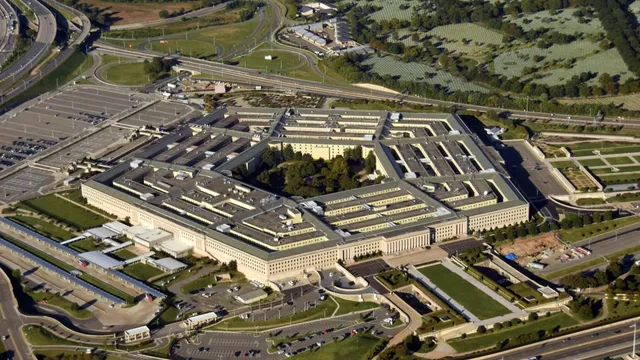
Pentagon colonel fired for calling Israel a death cult
2025-06-19 19:00- Colonel Nathan McCormack was removed from his position for making anti-Israel posts on social media.
- The Pentagon reaffirmed that these views do not represent official military positions and are against regulations.
- Such incidents reflect broader concerns about personnel conduct and the influence of personal opinions in the military.
Express your sentiment!
Insights
In early 2025, Colonel Nathan McCormack, a senior U.S. Army officer serving in the Joint Chiefs of Staff, was removed from his position after being found responsible for inflammatory social media posts criticizing Israel and the U.S.-Israel alliance. McCormack, who had been with the Joint Staff’s Strategic Planning Directorate since June 2024, made several claims under a semi-anonymous account that contradicted U.S. foreign policy and violated Department of Defense regulations regarding public statements. His comments included accusations labeling Israel as a 'death cult' and describing its leaders as focused on the expulsion of Palestinians. He also expressed views that the U.S. was a proxy for Israel, suggesting American officials were prolonging the conflict for political purposes. The Pentagon confirmed that McCormack's statements did not reflect the official stance of the military or the Joint Staff, emphasizing the importance of maintaining discipline and alignment with national security policies among service members. His posts triggered significant concern among military peers, with some deeming his views as irresponsible and potentially dangerous, as they risked undermining military cohesion and made him susceptible to exploitation by foreign intelligence. Consequently, the Army initiated an investigation to determine what further disciplinary action might be necessary. In another instance that garnered criticism, Defense Secretary Pete Hegseth was questioned about his defense of Kingsley Wilson, a controversial Pentagon spokesperson with a record of making antisemitic remarks. During a Senate committee hearing, Hegseth struggled to address concerns regarding Wilson’s past comments that have been described as fueled by conspiracy theories and offensive rhetoric. The senator pressed Hegseth about the appropriateness of hiring someone with such a record, highlighting bipartisan frustration over personnel decisions affecting national security. Overall, these events have sparked a heated debate about the conduct of military personnel and the vetting processes involved in appointing individuals to key positions within the Defense Department. The Pentagon's actions reflect growing scrutiny on the use of social media among active-duty members, reinforcing the call for adherence to regulations prohibiting public statements that might imply official endorsement of controversial views or contradict U.S. foreign policy.
Contexts
The Department of Defense (DoD) has established comprehensive regulations governing the use of social media by its personnel to ensure operational security, maintain professionalism, and protect national interests. As social media platforms have become ubiquitous in modern communication, these regulations aim to strike a balance between individual expression and the critical need for security. The guidelines provide clear directives that service members and DoD-affiliated personnel must follow to avoid potential breaches of sensitive information, which could have detrimental effects on national security and military operations. The regulations emphasize that while personnel may engage on social media, they must do so with caution and prudence, understanding the implications of their online presence. The DoD regulations stipulate that all social media interactions must adhere to established security protocols. This includes refraining from sharing classified information or operational details that could compromise missions or endanger personnel. Furthermore, service members are responsible for the content they post, which means any information shared must not reflect poorly on the military or its operations. The guidelines also cover the use of official photographs, logos, and branding, ensuring that personnel understand when and how such elements can be used in accordance with DoD policies. Violations of these regulations can lead to disciplinary actions, including potential legal consequences. An essential aspect of the regulations is the requirement for personnel to maintain professionalism in their communications. This includes avoiding the use of hate speech, harassment, or any conduct that may be deemed discriminatory. The DoD recognizes that social media can influence public perception of the military and its members, which reinforces the need for service members to represent their branch with integrity and respect. The regulations encourage service members to be mindful of their online interactions, understanding that their activities on these platforms can reflect not only on themselves but also on their colleagues and the military as a whole. To facilitate compliance with the social media regulations, the DoD provides training and resources to educate personnel on best practices for engaging on social media. This training encompasses topics such as identifying security risks, understanding privacy settings, and recognizing the permanence of online content. Additionally, the regulations are regularly updated to adapt to the evolving landscape of social media and emerging threats to security. The active engagement of the DoD in monitoring social media use and its potential impact reinforces the importance of these regulations in maintaining the integrity and effectiveness of military operations.